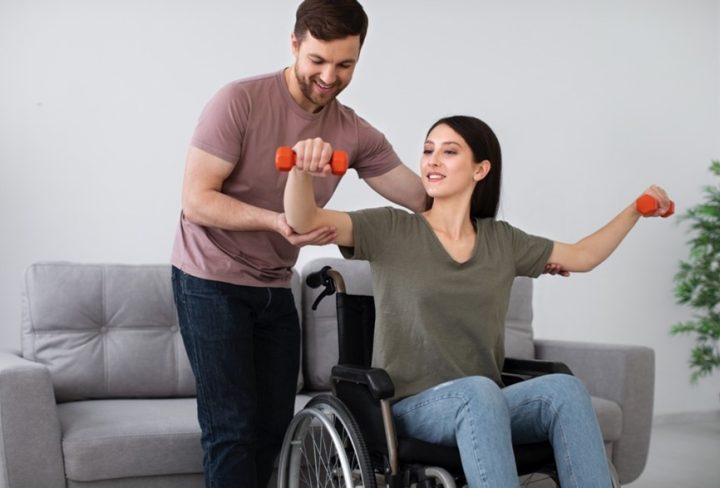Cerebral Palsy (CP) is a neurological disorder that affects movement, muscle tone, and posture. It’s a condition that presents unique challenges, but with the right support, individuals with CP can achieve remarkable milestones. One of the key allies in this journey is physiotherapy.
In this blog, let’s explore how physiotherapy plays a crucial role in enhancing the quality of life for those with CP.
What is Cerebral Palsy?
- A childhood disorder: CP is caused by abnormal brain development or damage to the developing brain, affecting a child’s ability to control muscles.
- Symptoms vary: they can range from mild to severe and may include muscle stiffness, uncontrolled movements, and balance and coordination difficulties.
The Power of Physiotherapy
- Improving mobility: physiotherapy helps in enhancing muscle strength and joint flexibility, making movement easier and more controlled.
- Reducing muscle stiffness: regular therapy sessions can reduce spasticity and improve overall muscle function.
- Enhancing independence: with improved mobility, individuals with cp can experience greater independence in their daily activities.
Physiotherapy Techniques for CP
- Stretching exercises: to improve flexibility and range of motion.
- Strength training: to build muscle strength and support weak limbs.
- Balance and coordination activities: to enhance motor skills and reduce the risk of falls.
- Special equipment use: like braces or wheelchairs, to assist in mobility.
The Early Start: Why It’s Crucial
- Early intervention: starting physiotherapy early in a child’s life can significantly impact their development and quality of life.
- Tailored programs: each child’s needs are unique, and physiotherapists create personalized programs to meet these specific requirements.
Support Beyond Physical
- Emotional and social benefits: physiotherapy also supports the emotional and social development of children with cp, boosting their confidence and self-esteem.
- Family involvement: educating and involving family members in therapy sessions is crucial for ongoing support and encouragement.
Conclusion
Physiotherapy is not just a treatment; it’s a journey of empowerment for those living with Cerebral Palsy. Through dedicated exercises and techniques, it opens doors to new possibilities, fostering independence, strength, and confidence. Remember, every small step in physiotherapy is a leap towards achieving personal milestones in the CP journey.


